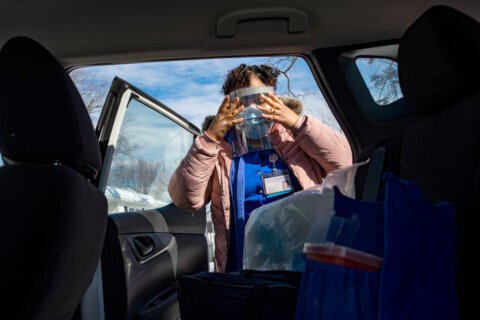WASHINGTON — Keeping Arlington’s night life enjoyable and safe is one of the county’s goals — and a new program aims to prevent alcohol-related incidents by raising restaurant standards while boosting business.
The Arlington Restaurant Initiative (ARI) started earlier this year as a voluntary pilot program modeled after the Best Bar None program, a British initiative determined to “increase safety for patrons and staff while increasing the economic viability of night life areas,” according to an explainer from Arlington County police.
So far, eight restaurants have been accredited as part of ARI, and the program is now accepting more applications. To become accredited, restaurants must adopt employee policies in accordance with ARI standards, including ones aimed at curbing underage drinking and establishing criteria for when to call police.
Some of the eight accredited restaurants had already incorporated those policies on their own. For William Jeffery’s Tavern on Columbia Pike, getting accredited was only a matter of paperwork.
“By just saying yes, we weren’t changing much besides just putting ourselves as part of the program,” said William Jeffrey’s Tavern Assistant General Manager Kevin Santiago.
He said they had most of the safety policies already written down. Those that weren’t were still there, in practice.
It’s a similar story for Freddie’s Beach Bar.
“One of them in particular that we really didn’t have written down was dealing with our establishing a safety officer,” said Freddie’s Manager Matt Minnier.
Minnier said the owner of Freddie’s was approached by the Arlington County police about participating in the pilot.
Police and other county agencies are collaborating as part of this program.
Minnier told WTOP a designated safety officer is now part of their written policies and operating procedures, which is one of the requirements for accreditation with ARI.
That individual is responsible for keeping a watchful eye out for trouble — “somebody that’s obviously had a little too much to drink, or if it’s someone being disruptive in the restaurant, maybe walking around and being too ‘handsy,’ so to speak, with our customers, or even our staff.”
Businesses that participate are still subject to rules already in place. For example, ARI participation will not exempt any bars or restaurants from mandated county or state inspections. ARI standards are supplementary to those regulations, but they’re still designed to mesh with them.
Requirements for accreditation include submitting policy manuals with details on how restaurants and bars will work to prevent customers from becoming overly intoxicated, policies about date rape drug awareness, and how they’ll empower staff to show support to designated drivers with free or discounted nonalcoholic drinks.







